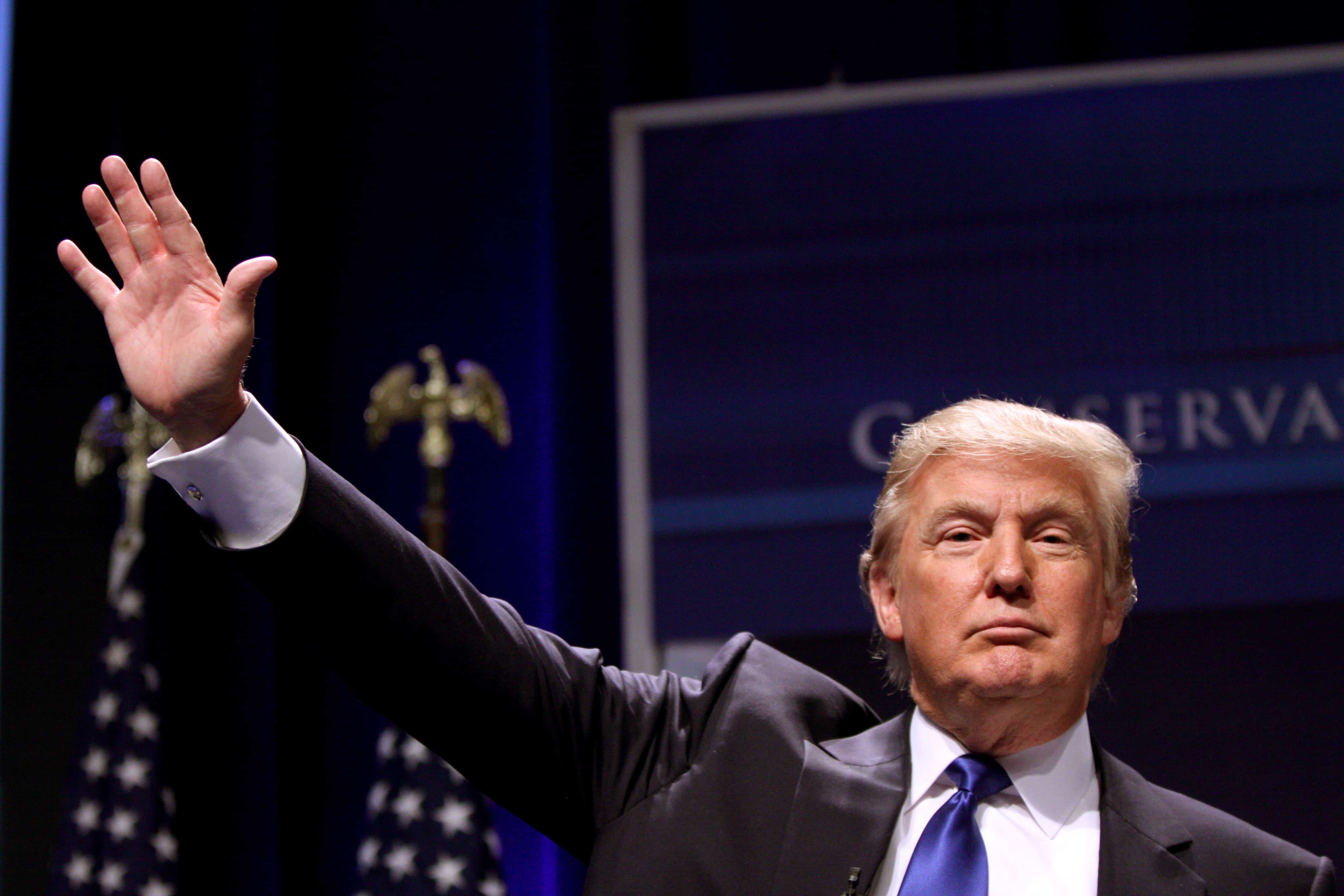Meet Trump’s new best friends on Wall Street
Trump has let Wall Street loose – and it could have dire consequences for us in the UK
07 February 2017
During the presidential campaign Donald Trump championed himself as the only candidate willing to stand up to Wall Street.
He repeatedly drew attention to Hilary Clinton’s links to large financial institutions, and claimed that Goldman Sachs had “total control” over her and the former Republican presidential candidate Senator Ted Cruz.
By promising to “drain the swamp” of financial and special interests, he rallied the cause of blue-collar workers who had suffered decades of disappearing jobs and stagnating living standards while those on Wall Street got rich and then got bailed out.
“I’m not going to let Wall Street get away with murder,” he told voters in Iowa. “Wall Street has caused tremendous problems for us.”
“Many of the most powerful and influential positions in his administration have been gifted to senior Wall Street insiders – most of them handpicked by Trump.”
Three weeks into his presidency, however, and the reality looks rather different. Many of the most powerful and influential positions in his administration have been gifted to senior Wall Street insiders – most of them handpicked by Trump.
Steven Mnuchin, Trump’s pick for Treasury Secretary, is a former partner of Goldman Sachs and hedge fund manager. Gary Cohn, the new Director of the United States National Economic Council, was previously President of Goldman Sachs (his decision to join Trump’s team netted him $285 million in severance pay). Steve Bannon, the White House chief strategist and Trump’s most influential advisor, is also a former Goldman Sachs investment banker. The list goes on.
Trump’s decision to surround himself with Wall Street insiders took many observers by surprise – including the financial sector itself.
“There is a joke going around here that if I’d have known how good Trump was going to be for Wall Street, I’d have campaigned for him,” an anonymous Goldman Sachs executive is reported to have said back in November.
Trump’s deregulatory agenda
Far from reigning in Wall Street, Trump’s efforts so far have focused on trying to roll back the limited reforms to financial regulation that were implemented after the financial crisis. Last week he kicked things off by ordering a review of the Dodd-Frank Act – a regulatory law introduced in 2010 to try to prevent future financial meltdowns. In doing so he made his intentions (and motivations) clear:
“We expect to be cutting a lot out of Dodd-Frank, because frankly I have so many people, friends of mine, that have nice businesses and they can’t borrow money … They just can’t get any money because the banks just won’t let them borrow because of the rules and regulations in Dodd-Frank.”
Although by no means perfect, the Dodd-Frank Act introduced important reforms to financial regulation that reign in some of the worst excesses of the financial sector that led to the financial crash. Dismantling it will increase the likelihood of another financial crisis, leaving taxpayers at risk..
The future of cross-border co-operation on bank regulation has also been cast into doubt after Janet Yellen, Chair of the Federal Reserve, received a letter from a senior Republican member of the House of Representatives criticising her for “negotiating international regulatory standards for financial institutions.”
The letter warned that the US’s “continued participation” in international forums such as the Basel Committee on Banking Supervision and the Financial Stability Board would depend on meeting the Trump administration’s objectives, and demanded a “comprehensive review” of past international agreements that are “killing American jobs”.

Regulation is good, not bad…
Trump’s justification for pursuing deregulation – that new rules have restricted business lending and economic growth – does not measure up to the facts. Underpinning his claim is an often heard but misguided belief that regulation somehow limits banks’ ability to lend which, in turn, hurts the economy.
This is a myth: far from being bad for the economy, measures to promote financial stability are pre-requisites for long-term sustainable growth. In practice , there is no trade-off between financial regulation and economic performance. Today US business lending relative to GDP is at its highest level in 50 years.
But despite his campaign rhetoric about standing up to Wall Street, Trump seems determined to unleash the financial sector once again, without the slightest regard to the consequences for the rest of society.
The President’s support for Wall Street doesn’t just threaten stability in the US – it also poses risks here in the U.K. too.
The Brexit factor
As we learned in 2008, turbulence in the US financial sector can quickly spread around the world. With one of the largest, most concentrated, complex and interconnected financial systems in the developed world, the U.K is more exposed to developments in the U.S than almost any other major economy.
While limited reforms since the crisis have strengthened the UK’s financial system, many of these were implemented through European Union (EU) directives.
But following the U.K’s vote to leave the EU, Theresa May has set out plans to amend or repeal aspects of EU law through a ‘Great Repeal Bill’. Given the government’s repeated threats to slash regulation and become an offshore tax haven, it is not inconceivable that Theresa May may choose to roll back financial regulation in a bid to curry favour with Trump and the City of London.
Matters could be made worse if the government signs a hastily negotiated trade deal with the US. As we recently explained, trade deals aim to level out regulatory standards between two countries. In theory, this could mean that both countries choose to raise their standards to make them equal.
But with Trump in the White House, it’s fair to assume that the direction of regulatory standards will likely be downwards. His ‘America first’ mantra also makes it likely that the U.K. will come off worse – a price the government may consider worth paying to create an illusion of post-Brexit Britain succeeding as a “global leader in free trade”.
The reality would be the worst of all worlds. We were promised that Brexit would restore parliamentary sovereignty and allow us to take back control of our laws. A new trade deal with Trump will do precisely the opposite. It will lock us into a future of low regulatory standards designed to serve the interests of corporate power and will put us at risk of another crash.
As memories of the financial crisis fade, it is up to us to ensure that we don’t let financial regulation get remoulded around the demands of Donald Trump and his brigade of Wall Street financiers.
Instead, we need to be transforming our broken financial system into one that serves the long-term interests of society.
Topics Banking & finance






